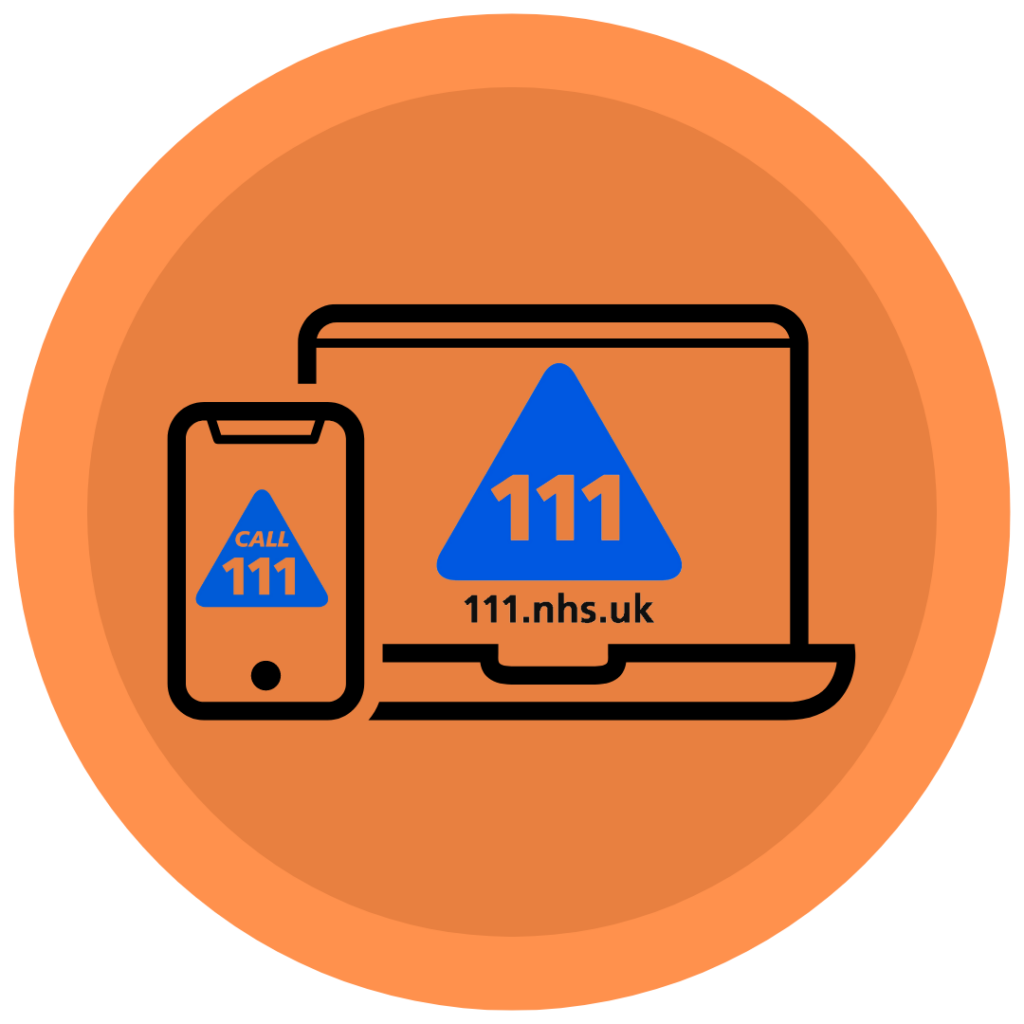When you dial 999 or 111, a call assessor will answer and guide you through a series of questions. It is vital that you listen, stay calm and answer as best you can to ensure you get the most appropriate care for your condition.
Life threatening emergency – 999
It’s quite simple to remember, for life-threatening emergencies dial 999. Always call 999 if someone is seriously ill or injured, and their life is at risk. Examples of medical emergencies include (but are not limited to):
- chest pain
- difficulty in breathing
- unconsciousness
- severe loss of blood
- severe burns or scalds
- choking
- fitting or concussion
- drowning
- severe allergic reactions.
Urgent care – NHS 111
Think you or a family member need medical help right now? Use NHS 111 Online or call 111 for advice on what to do next. When it’s not a life-threatening emergency, but you need medical help and don’t know what to do, NHS 111 Online is the right place to go.
After answering a few simple questions about your condition and symptoms, NHS 111 Online will direct you to the right place to get the help that you need. Whilst the system will not give you a diagnosis, it will be able to direct you to the best and most appropriate place for onward help such as an evening and weekend GP, an emergency dentist, local pharmacy, urgent specialist mental health support, self-care advice at home, an urgent treatment centre or A&E.
NHS 111 is free and available to call 24 hours a day. Call 111 to speak to someone if you are unable to use NHS 111 Online, if you need to discuss complex medical problems, discuss worries about a long-term condition, get end-of-life care or report a death, report child protection or vulnerable adult concerns.
When you call 111, the first voice you will hear is a call assessors who will take you through a series of questions to determine how they can help. There are also have a team of clinicians on hand within the control room who are able to provide additional assessment and advice, when required, over the phone. The team includes GPs, nurses, pharmacists as well as dental and mental health nurses.
You should call NHS 111 if:
- You need medical help fast but it’s not a life-threatening emergency
- You don’t know who to call for medical help or you don’t have a GP to call
- You think you need to go to A&E or another NHS urgent care service but are not sure which one is most appropriate or closest
- You require health advice or reassurance about what to do next
- You have medication enquiries

For less urgent health needs, you should contact your GP or local pharmacist in the usual way.